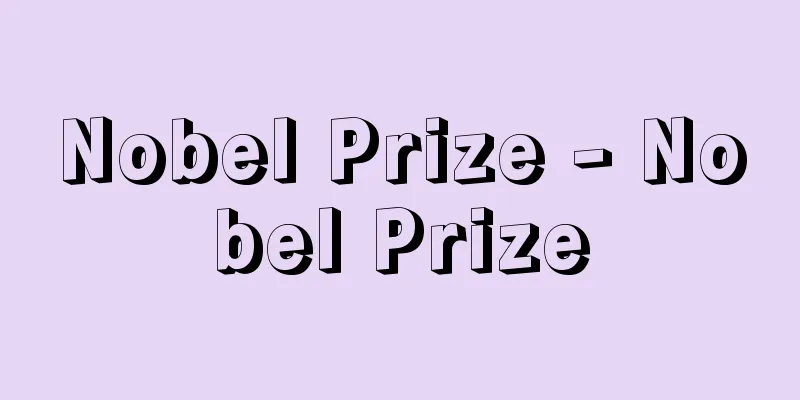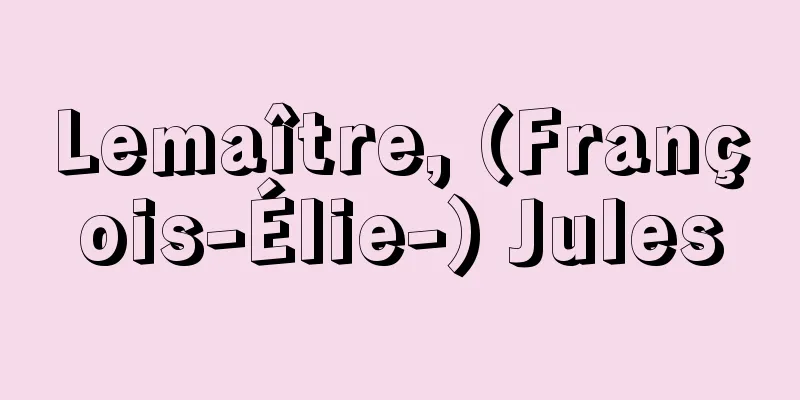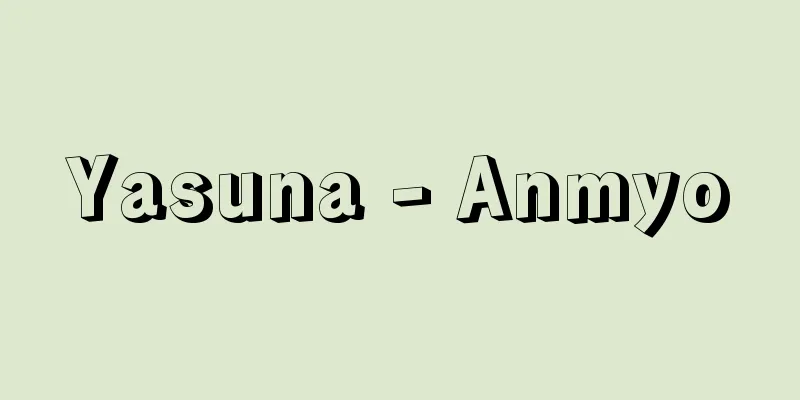Nobel Prize - Nobel Prize

|
The prize is awarded annually by four institutions from funds bequeathed by Alfred Bernhard Nobel, who became wealthy through the invention of dynamite. The first award was made on December 10, 1901, the fifth anniversary of Nobel's death. In accordance with Nobel's will, the prize is awarded annually to "those who have made the greatest contribution to mankind during the past year" in the five fields of physics, chemistry, physiology or medicine, literature, and peace. The Prize in Economics was established by the Swedish National Bank in 1968 and has been awarded since 1969. According to Nobel's will, the awarding organizations are the Royal Swedish Academy of Sciences for physics and chemistry, the Royal Karolinska Institute for physiology or medicine, the Swedish Academy for literature (all in Stockholm), and the Nobel Committee of the Norwegian Parliament (Oslo) for the Peace Prize. The Royal Swedish Academy of Sciences awards the prize in economics. The Nobel Foundation, established in accordance with Nobel's will, is the legal owner and administrator of the fund, but it only acts as a governing body connecting the four Nobel Prize-winning organizations and is not involved in the selection or decision-making of the prize, which is decided by the awarding organizations. Laureates receive a gold medal, a diploma and a cash prize. The amount of the prize depends on the income of the foundation, and 67.5% of the interest earned from the foundation in the previous year is allocated to the prize money in the five categories excluding the economics category. 22.5% is allocated to the selection fund and 10% is channeled back into the foundation. The same is awarded to the economics category laureate, but the funding is provided by a donation from the Swedish National Bank. The selection of the laureates begins in the autumn of the previous year, when a letter of recommendation is sent to people selected according to the Statutes of the Nobel Foundation. The criteria for recommendation are to select people from all over the world who excel in their field of expertise, and self-nomination is not permitted. The letters of recommendation must arrive at the Nobel Committee established for each category by January 31 of each year. The Nobel Committee will begin the selection process after February 1, using the letters of recommendation received as a reference. If necessary, the Committee may invite experts of any nationality. In most cases, the Committee's recommendation is submitted to the Nobel Prize-awarding organization between September and early October, and the final decision is made by November 15. The Committee's recommendation is not absolute, but is almost always respected, and the deliberations and votes are never made public. The Prize is awarded to individuals and is open to everyone, regardless of nationality, race, religion, or ideology. Only the Peace Prize is open to organizations and institutions. No posthumous nominations are made, but if a person's achievements were nominated during his or her lifetime, such as Dag Hammarskjöld (1961 Peace Prize), Erik Axel Karlfeldt (1931 Literature Prize), or Ralph Steinmann (2011 Physiology or Medicine Prize), the prize can be awarded posthumously. No objections to the award are permitted. The awarding body is independent of the state, and governments cannot influence the award decision for political or diplomatic reasons. The prize may be awarded in its entirety to one person, divided equally between two achievements, or awarded jointly to two or more people (but never more than three). A person may receive the prize multiple times. If there are no candidates who meet Nobel's will, or if the worsening world situation makes it difficult to gather the information necessary for the selection process, such as during World War I or World War II, the prize may be withheld or not awarded. If no laureate is nominated or the prize is not awarded, the money is returned to the foundation. In such cases, the carried-over prize may be combined with the prize of the previous year, and two prizes may be awarded in the same field in one year. If the prize is declined or not claimed by the deadline, the money is returned to the fund. There have been cases in the past where the prize was declined or the government of the laureate's country forced the laureate to decline the prize. In such cases, the laureate is added to the list of Nobel laureates with a note that the prize was declined. There are various reasons for decline, but most of them are due to external pressure from the government or other parties. For example, in 1937, Adolf Hitler banned Germans from receiving the Nobel Prize, claiming that the Nobel Peace Prize awarded in 1935 to Karl von Ossietzky, a German peace activist who had been in a political prison camp since 1933, was an insult to Germany. If a person declines the prize, he or she can explain the situation and ask to receive the gold medal and diploma, even if it is years later. However, the prize money is not awarded because it has already been returned to the fund. The award ceremonies are held annually on December 10, the anniversary of Nobel's death, in Stockholm, Sweden for the categories of physics, chemistry, physiology or medicine, literature, and economics, and in Oslo, Norway for the Peace Prize. The laureates are usually present to accept their prizes in person. The principles of the award are based on Nobel's will, but in 1900 the supplementary rules for their interpretation and application were decided through consultation between the executors, representatives of the awarding institutions, and the Nobel family, and were approved by the Swedish King. These rules have remained almost unchanged to this day, but there have been some slight modifications in their actual application. For example, the award rule requiring achievements "during the past year" has come to take into account achievements over many years, and the vague expression "idealistic tendencies" in the conditions for the literature prize was initially interpreted in a very narrow sense, but has gradually become more flexible and broadly accepted. The selection criteria for the economics prize used to be more scientifically inclined, and the first winners, Ragnar A. K. Frisch of Norway and Jan Tinbergen of the Netherlands, were awarded for their contributions to the development of econometrics by applying mathematical models to the analysis of economic activity. The Nobel Prize has been less controversial in scientific fields such as physics, chemistry, and physiology/medicine, but the literature and peace categories have been controversial due to the nature of the prize. In particular, the Peace Prize has often gone undecided. Source: Encyclopaedia Britannica Concise Encyclopedia About Encyclopaedia Britannica Concise Encyclopedia Information |
|
ダイナマイトの発明によって富を得たアルフレッド・ベルンハルド・ノーベルが遺贈した基金から,毎年 4機関によって授与される賞。最初の授与は,ノーベルの 5回目の命日にあたる 1901年12月10日に行なわれた。ノーベルの遺言に従って,毎年,物理学,化学,生理学・医学,文学,および平和の 5分野において「過去 1年間に人類に対して最大の貢献をした者」に授与される。経済学賞は,1968年スウェーデン国立銀行によって設けられたもので,1969年から授賞されている。賞の授与機関は,ノーベルの遺志によって,物理学部門および化学部門はスウェーデン王立科学アカデミー,生理学・医学部門は王立カロリンスカ医学研究所,文学部門はスウェーデン・アカデミー(以上ストックホルム),平和賞はノルウェー国会ノーベル委員会(オスロ)と定められている。経済学部門については,スウェーデン王立科学アカデミーが賞の授与にあたる。ノーベルの遺言に基づいて設立されたノーベル財団が基金の法的な所有者で,運営管理者でもあるが,四つのノーベル賞授与機関を結びつける管理体としての役割を果たすだけで,賞の審査やその決定には関与せず,選考は授与機関によって行なわれる。受賞者には,金メダル,賞状および賞金が与えられる。賞金額は基金の収益に左右され,基金の前年度の利息の 67.5%が経済学部門を除く 5部門の賞金に割り当てられる。22.5%は選考の基金に,10%は基金に操り込まれる。経済学部門の受賞者にも同じものが与えられるが,スウェーデン国立銀行の献金を基金としている。 受賞者の選考は前年の秋,ノーベル財団定款に基づいて選ばれた人々への候補者推薦の依頼状発送に始まる。推薦の基準としては,専門分野で卓越している人を世界中から広く選び,自薦は認められない。推薦状は,毎年 1月31日までに各部門ごとに設けられたノーベル委員会に到着していなければならない。ノーベル委員会は,2月1日以後,寄せられた推薦状を参考に選考作業に入る。委員会は必要に応じて国籍を問わずに専門家を招くこともできる。ほとんどの場合,9月から 10月初旬までに,委員会の推挙状がノーベル賞授与機関に提出され,最終決定は 11月15日までに終了する。委員会の推挙は絶対ではないが,ほぼ例外なく尊重され,審議や表決は一切公表されない。賞は個人に対して与えられ,国籍,人種,宗教,イデオロギーにかかわらず,すべての人に門戸を開いている。平和賞のみが組織や機関も対象となる。死後に業績が推薦されることはないが,たとえばダグ・ハマーショルド(1961平和賞)やエリク・アクセル・カルルフェルト(1931文学賞),ラルフ・スタインマン(2011生理学・医学賞)のように,生前にその業績が推薦されていた場合には,死後でも賞を与えることができる。賞の授与に対する異議は認められない。また,授与機関は国家から独立しており,政治上あるいは外交上の理由で,政府が賞の決定に影響を与えることはできない。賞は 1人に全部与えられることも,二つの業績に対して等分されることも,2人もしくはそれ以上(ただし 3人をこえる例はない)の共同研究に一括して与えられることもある。1人が複数回受けることもできる。ノーベルの遺志にかなう候補者がいない場合や,第1次世界大戦,第2次世界大戦の最中のように世界情勢の悪化で選考作業に必要な情報収集が困難な場合には,賞は保留,もしくは授与されない。受賞者が指名されない,あるいは賞が授与されない場合,賞金は基金へ戻される。その場合,翌年には,繰り越された分とその年の分とを合わせ,一つの分野で 1年に二つの賞が授与されることがある。賞が辞退されたり,決められた期限までに受け取られない場合も,賞金は基金へ戻される。これまでにも賞が辞退されたり,受賞者の国の政府が受賞を辞退させた例がある。その場合でも,「受賞を辞退した」という注を付してノーベル賞受賞者リストに加えられる。辞退の理由はいろいろであるが,その多くは政府など外部の圧力である。たとえば 1937年アドルフ・ヒトラーは,ドイツの平和運動家で 1933年から政治犯収容所にあったカール・フォン・オシエツキーが 1935年に受けたノーベル平和賞はドイツを侮辱するものだったとして,その後ドイツ人のノーベル賞受賞を禁じた。辞退者は,たとえ何年後であろうと,事情を説明してあらためて受賞を希望すれば,金メダルと賞状を受け取ることができる。しかし,賞金はすでに基金へ戻されているので授与されない。授与式典は毎年 12月10日のノーベルの命日に,物理学,化学,生理学・医学,文学,経済学の各部門はスウェーデンのストックホルムで,平和賞はノルウェーのオスロで行なわれる。通常は受賞者本人が出席して賞を受けることになっている。 授賞の原則はノーベルの遺言書に基づいているが,1900年にその解釈と適用に関する補助規則が,遺言執行人,授与機関の代表者およびノーベル家との間で協議・決定され,さらにスウェーデン国王の承認を受けた。この規則はほとんど変更されずに今日にいたっているが,実際の適用にあたってわずかながら修正された点もある。たとえば,「過去 1年間」の業績という授与規定については,長年の業績が考慮されるようになってきたほか,文学賞の条件にある「理想主義的傾向」という曖昧な表現は,当初は非常に狭い意味で解釈されていたが,しだいに弾力的に広く受け取られるようになった。経済学賞の選考基準はかつては科学的な傾向が強く,第1回の受賞者,ノルウェーのラグナル・A.K.フリッシュとオランダのヤン・ティンベルヘンは,経済活動の分析に数学的モデルを適用し,計量経済学の発展に寄与した業績で受賞した。ノーベル賞は物理学,化学,生理学・医学などの科学的分野では議論は少ないが,文学や平和部門については,賞の性質上さまざまな論議を呼んできた。特に平和賞は,受賞者が決定しないことがたびたびあった。 出典 ブリタニカ国際大百科事典 小項目事典ブリタニカ国際大百科事典 小項目事典について 情報 |
Recommend
Shitomido - Shitomido
A type of wooden door. It was a fixture used in th...
Sturnus sinensis (English spelling) Sturnussinensis
… [Hiroyuki Morioka]. … *Some of the terminology ...
Elasmobranchia - Elasmobranchia
A general term for fish that make up the class Ch...
Bellerophon (English spelling)
Hero of Greek mythology. Born in Corinth to King G...
Orang Laut (English spelling)
Orang means people and Laut means sea, and is a ge...
Rosa gallica (English spelling) Rosagallica
…[Naruhashi Naohiro]. . … *Some of the terminolog...
Fukuma [town] - Fukuma
An old town in Munakata County facing the Genkai S...
Weakened memory - Kimeigenjaku
…Events that evoke strong emotions are strongly i...
Massachusetts [State] - Massachusetts
A state in New England, USA. Abbreviated as Mass. ...
tonal harmony
...This became decisive in the 18th century with ...
Karaoke - Karaoke
Karaoke was originally a term in the music indust...
Symplocarpus nipponicus (English spelling) Symplocarpus nipponicus
… [Mitsuru Hotta]... *Some of the terminology tha...
Heinrich von Kleist
German playwright and novelist. Born on October 1...
Metal electrode
...The surfaces of metal electrodes and carbon el...
Ito Shinsui - Ito Shinsui
Japanese painter and printmaker. Born into a merc...









